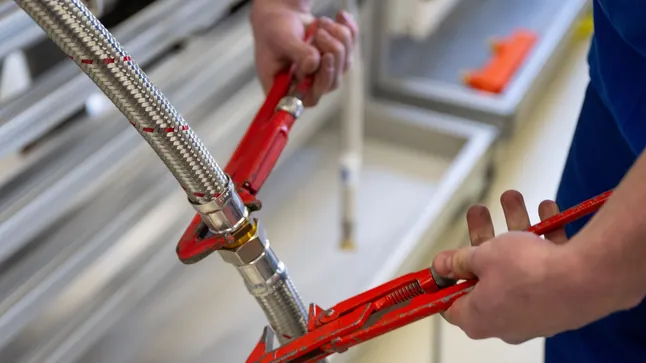Germany is facing a growing shortage of skilled labor, especially in the Mittelstand sector. Learn what’s causing the crisis, how businesses are responding, and what role immigration and technology can play.
Skilled Workers in Short Supply: A Growing Concern for Germany’s Mittelstand
It’s no longer just an abstract fear — for a huge number of companies in Germany, especially in the Mittelstand, the shortage of qualified personnel is a daily headache. A recent survey carried out by Heidelberger Druckmaschinen AG asked about 700 execs from mid-sized businesses across the country what’s keeping them up at night. And the answer? Not rising costs. Not government red tape. But people — or rather, the lack of them.
According to the survey, almost every company is feeling the pressure. Nine out of ten said they’re affected by a lack of skilled labor, and nearly half said the impact is significant, even severe. It’s now seen as the biggest issue facing these firms — more urgent than energy prices or bureaucracy, which used to top the list not long ago.
Real Consequences, Not Just Stats
This isn’t just theory. Businesses are slowing production, turning down contracts, and struggling to keep up with demand. In some cases, they’re watching opportunities slip through their fingers because there simply aren’t enough trained hands on deck.
For the employees who are there, it often means more pressure and longer hours. That leads to burnout, which leads to more people leaving — and around and around we go.
A Construction Example
A company in the construction industry, for example, may have millions of euros in projects lined up — but if they can’t find licensed electricians, project managers, or skilled machine operators, they’re stuck. Some are even pulling workers in from neighboring EU countries just to keep projects moving, but that’s not a long-term solution.
And in Tech? The Brain Drain Is Real
Startups are losing top talent to bigger international players who offer remote jobs with better pay. Smaller firms can’t keep up, and local expertise is draining away fast.
Tech to the Rescue? Kind Of.
Many firms are looking toward technology as a lifeline. The survey showed that 74% are investing in digital tools and internal process automation. And about two-thirds see AI as something that might help close the gap. Especially in manufacturing, automation is being seen less as a luxury and more as a survival tactic.
But tech isn’t a magic fix. You still need people who know how to use the new systems, maintain the machines, interpret the data. And that’s a whole other skillset — one that many businesses say they don’t have enough of yet.
Digitalization Is Still Catching Up
There’s also a bit of an irony here. Everyone agrees that digitalization is essential if Germany wants to stay competitive, but most businesses admit they’re not there yet. Seven out of ten rated the current level of digital development in the economy as “meh” — not terrible, but definitely not great. Even within their own walls, a lot of companies feel like they’re behind.
Ludwin Monz, the CEO of Heidelberger Druckmaschinen, put it bluntly: digitalization is lagging, especially in small and mid-sized firms. He said it’s not just about buying fancy tools — it’s about having a clear plan and making sure workers are trained for what’s coming. And education systems have to step up, too. Because if schools and training programs don’t prepare young people for the digital workplace, the gap’s only going to get wider.
It’s Not Just About Robots — It’s About People
Of course, there’s only so much that automation can do. At the end of the day, Germany still needs people — and not just software engineers or AI experts. Workers across all levels are in demand, from skilled trades to basic support roles. That’s why some political voices, like Reinhard Houben from the FDP, are calling for a more open approach to immigration.
His point is simple: if we want to maintain our standard of living, we need more people — and we need to make it easier for them to come, stay, and work. That means less bureaucracy, faster visa processes, and a real culture of welcoming newcomers.
What About the Workers Already Here?
At the same time, more attention needs to be paid to the workers already in the system. Many have transferable skills but no clear path to upgrade or shift into high-demand roles. Adult retraining programs are often underfunded or too rigid to meet the real needs of the labor market. Labor unions and employee advocacy groups could play a stronger role here — pushing for better training opportunities, fair transitions, and support for workers navigating this economic shift.
Time for a Team Effort
There’s no silver bullet here. Businesses have to adapt and invest in their people. Schools and vocational programs must modernize, fast. Policymakers need to create the right incentives — not just throw money around, but build smart frameworks that reward companies for training, hiring, and growing sustainably.
And maybe most importantly, the public and private sectors need to work together. We can’t rely solely on the market to solve the problem. The state has a responsibility to support these transitions — not with red tape, but with real, practical action: quicker recognition of foreign degrees, tax breaks for upskilling programs, and more flexible migration policies.
Closing Thoughts
The labor shortage isn’t going away overnight. But with the right mix of innovation, education, and immigration, Germany still has the tools to face it head-on. What’s needed now is urgency — and the will to act.

